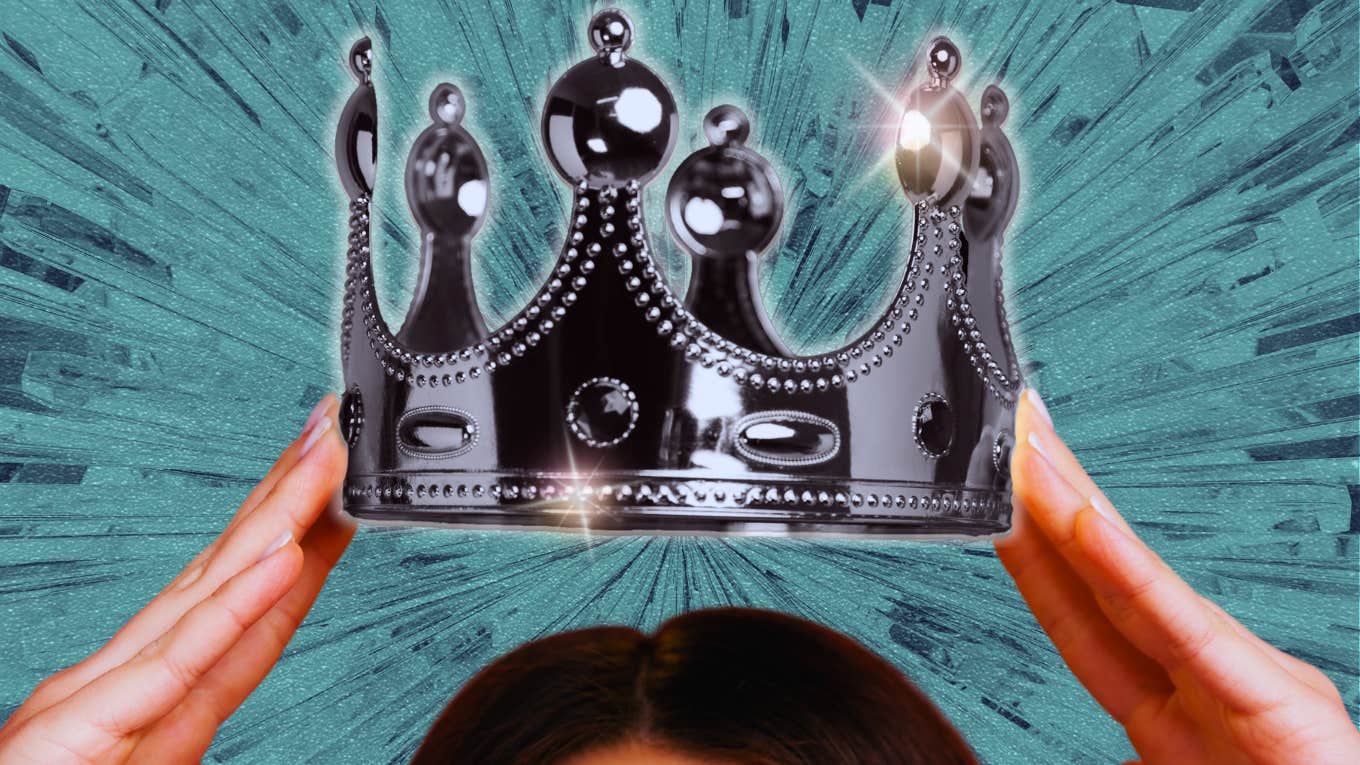19 Ways To Cope When You're Dealing With An Abusive Narcissist
Sometimes ignoring a narcissist isn't an option.
 arsgera, Khosro | Canva
arsgera, Khosro | Canva Do you get drawn to narcissistic relationships with people who abuse you? The types of people who, whenever you try to assert yourself or raise issues with their behavior, react with abuse? If so, it is important to learn how to deal with a narcissist and prevent narcissistic abuse from happening to you. What is a narcissist? A narcissist is a person with narcissistic personality disorder (NPD). According to the Mayo Clinic, "Narcissistic personality disorder — one of several types of personality disorders — is a mental condition in which people have an inflated sense of their own importance, a deep need for excessive attention and admiration, troubled relationships, and a lack of empathy for others. But behind this mask of extreme confidence lies a fragile self-esteem that's vulnerable to the slightest criticism."
Perhaps you’ve encountered a narcissistic friend, boss, or partner who adored you when you were meeting all their needs. Once the supply source stops, the narcissist will disregard you or devalue you. If you stand up for yourself in some way, you will be hijacked. The narcissist perceives any form of self-expression that does not serve their needs as a threat to them. Once they feel attacked, they will fight to defend their interests and defeat anyone who gets in their way. The narcissist sets out to destroy you to avoid the deflation of their grandiose self. They fall apart when they feel criticized or wounded by you. They may launch a vicious smear campaign to rise above you.
If you expose their narcissistic character flaws, they will portray themselves to be the victim to recruit others who can pick them up. They might turn their mother against you or get your friends or colleagues on their side with gossip that distorts the truth, so they do not look bad. It is pointless trying to reason with a narcissist because they feel they are always right and will prove others wrong. Life is about winning and defeating others, so they do not fail. When life does not live up to their high expectations, it causes them to crumble and hit hard, since they have no way to pick themselves up. They lift themselves by seeking supplies and devaluing those who question them. Many people lose themselves entirely when they buy into the grandiose illusion that the narcissist portrays themselves to be, as part of the grandiose false self. Many are left feeling betrayed, fooled, or deceived by the narcissistic false persona until their narcissistic personality becomes unmasked.
To protect yourself, it is important to separate yourself, by creating boundaries to avoid being in the firing line. If you do not absorb the attacks by not taking them personally, you do not take in any insults. This allows you to function for your children, perform at work, and hold yourself together. Do not reveal your cards or vulnerabilities, since this gives them bait to hook into you. Instead, shield yourself and limit contact, if you can. Here are 19 ways to cope with narcissistic abuse in relationships.
Here are 19 ways to cope when you're dealing with an abusive narcissist:
1. Be careful when exposing the narcissist’s behavior because they are likely to perceive it as a threat to their grandiosity
They cannot hear anything when they perceive it as criticism. Instead, they will attack the injured source. Trying to get through to them can be destructive.
 Pexels / Timur Weber
Pexels / Timur Weber
2. Remove yourself from abusive behavior
3. Do not feel pressure to do things their way
Ask yourself, how does this affect me or my children?
4. Do not give in because you feel worn out or depleted
The more you submit, the more you lose yourself completely.
5. Avoid doing things, if it goes against your values
6. Stay true to yourself and see their behavior for what it is
7. When raising issues, be aware that you could be triggering a narcissistic injury, which causes them to feel inadequate or ashamed
Try talking when things are calm.
8. Sometimes, communicating via email or text can shield you from emotional abuse.
9. If they devalue your feedback, they are most likely defending to avoid feeling inadequate.
10. Be careful taking on criticism that may not reflect you
Do not take it personally, it often reflects how they are feeling deep down. Do not allow them to cause you to doubt yourself.
11. Try to express how you feel with "I" statements, not "you" statements that can cause them to feel blamed or judged
If they are less defensive, they are more likely to hear you. If they perceive you as attacking their character, then they will become defensive and not hear you.
 Pexels / Vera Arsic
Pexels / Vera Arsic
12. State facts and observations about their actual behavior rather than labeling or judging the person’s character
Be firm and not passive when addressing how their behavior impacts you. Otherwise, your words will have no conviction.
13. Do not let them get away with addictions or affairs, because it will permit them to treat you this way
Be sensitive to their feelings, but let them know where you draw the line.
14. If you want to raise an issue, it can be useful to acknowledge their feelings
Show that you understand their point of view, to get them to warm up to what you are about to say. This makes the narcissist much less resistant because they feel somewhat understood. This means fusing with them somewhat, not necessarily giving in to them, but showing that you are not against them
15. Be mindful of your reactions
This will prevent you from reacting toward them so you can better defuse the situation
16. Help them to see things from other points of view
Especially when they are projecting by criticizing or accusing you of things you haven’t done.
17. Let them know if you feel they have high expectations of themselves and expect the same from you, it will lead to disappointment for them
18. Learn to not take on board their criticism
Find ways to let them know that you understand how critical they feel deep down, so they can own this part of themselves.
19. Listen to yourself and understand when you are being manipulated or controlled
Take back control of yourself.
These are basic guidelines on how to deal with narcissist abuse, depending on the severity, so you can keep the abuse at bay when no contact with a narcissist cannot be achieved. However, the grandiosity of the malignant narcissist is more challenging. If you are struggling to cope or feeling fearful of expressing yourself, then it is advisable to seek counseling to build ego strength to help recover from an abusive relationship with a narcissist and rebuild yourself. After all, if you cannot function for yourself, this will limit your ability to be there for yourself and even your children. If narcissistic abuse prevails, then no contact is the best way to deal with a narcissistic relationship.
If you think you may be experiencing depression or anxiety as a result of ongoing emotional abuse at the hands of a narcissist, you are not alone. Domestic abuse can happen to anyone and is not a reflection of who you are or anything you've done wrong. If you feel as though you may be in danger, there is support available 24/7/365 through the National Domestic Violence Hotline by calling 1-800-799-7233. If you’re unable to speak safely, text LOVEIS to 1-866-331-9474.
Nancy Carbone is an author, relationship therapist, and psychodynamic therapist. She specializes in the treatment of personality disorders and relational trauma and is accredited as a mental health social worker.
